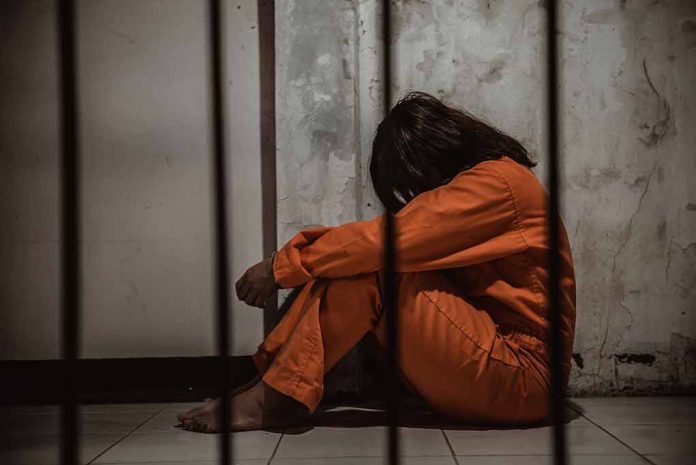
Susan Smith’s parole appeal, tied to her infamous 1994 crimes, was denied, maintaining her life sentence behind bars.
At a Glance
- Susan Smith, convicted for the 1994 drowning of her two sons, had her parole appeal dismissed.
- The parole board highlighted her lack of accountability as a critical factor for denial.
- Smith remains in custody at Leath Correctional Institution, eligible for parole hearings every two years.
- The case was notorious partly due to Smith’s false accusations against a Black man during the investigation.
Ongoing Consequences
Susan Smith, now 53, continues her life sentence at South Carolina’s Leath Correctional Institution after her recent parole appeal was denied. In 1994, Smith was convicted of rolling her car into a lake, thus drowning her sons, Michael and Alexander. At the parole hearing, Smith cited remorse, claiming divine forgiveness. However, the board concluded her emotional appeal lacked sufficient accountability for release.
Smith’s parole board appearances occur biennially, providing her repeated opportunities for self-reflection and potential release. Her efforts to seek parole are met by staunch opposition from family members of the victims and prosecutors, stressing this case’s gravity. The parole board’s decision was swayed not only by the heinous nature of her crimes but also by lingering concerns over her acceptance of culpability.
Parole request DENIED for double murderer Susan Smith by the South Carolina Board of Paroles and Pardons. Smith has served 30 years of a life sentence for the 1994 drowning of her two young children. https://t.co/YBmleiaAbq pic.twitter.com/yAPE3f2SUR
— [email protected] (@GavinJackson) November 20, 2024
Impact of 1994 Crimes
Twenty-nine years ago, Smith’s actions shocked the nation, partly due to racial implications. Initially, she blamed a Black man for hijacking her car and kidnapping her sons, sparking a high-profile, racially charged manhunt. Prosecutor Tommy Pope emphasized this narrative’s negative repercussions. With no involvement of a random perpetrator, Smith confessed to the murders after nine days, altering her sons’ fate drastically.
“She should not be released until every living person who remembers Michael and Alex is dead — and that won’t happen in her lifetime,” stated Pope.
Despite acknowledgements of past mistakes, Smith attributes her choices to untreated mental health challenges. Her defense also presented her Christian counseling pursuits and efforts mentoring fellow inmates, argued as evidence of transformation. Nevertheless, opponents view these endeavors as insufficient compared to the lasting impact on the victims’ families.
Susan Smith is denied parole 30 years after drowning 2 sons by rolling car into South Carolina lake https://t.co/2jj3qgqHni
— The Post-Star (@poststar) November 20, 2024
Future Prospects
Parole remains a challenging prospect for offenders involved in notorious cases, especially amid victim opposition and judicial severity. Ex-husband of Susan Smith and father of the boys, David Smith, and members of the boys’ family continue their vocal fight against Susan Smith’s release, underscoring the destruction left in the wake of her actions. In two more years, Smith will have another opportunity to appeal, emphasizing the cyclic nature of her incarceration journey.
“In two more years, we’ll go through this again, but at least I know, for now, she’ll still be behind bars,” said David Smith.
Smith’s parole denial serves as a broader commentary on accountability within the judicial system, urging reflection among individuals responsible for heinous acts. As Smith continues her sentence, society watches with anticipation of any forthcoming changes, both in her mindset and the justice system’s handling of similarly grave cases.





